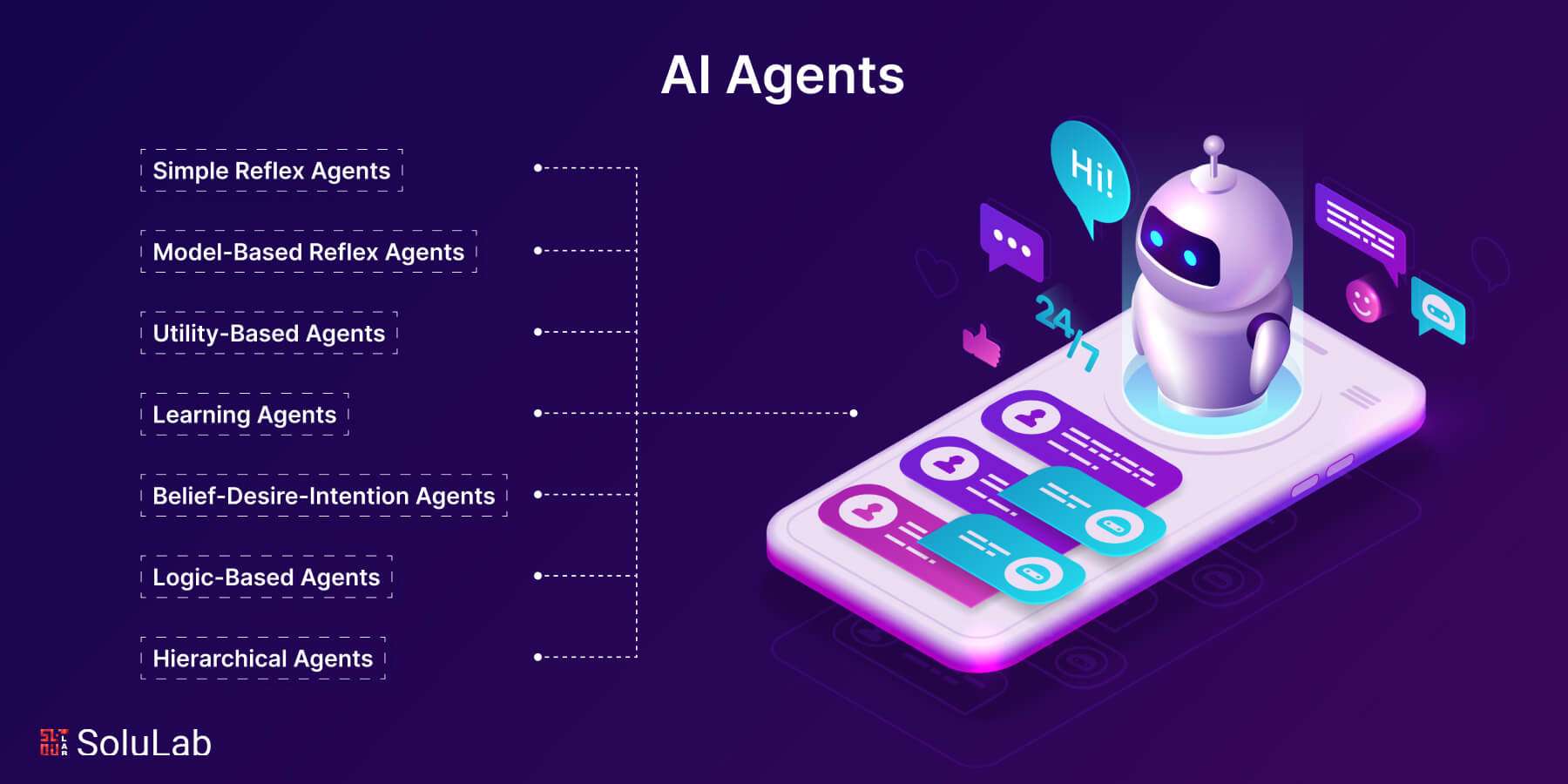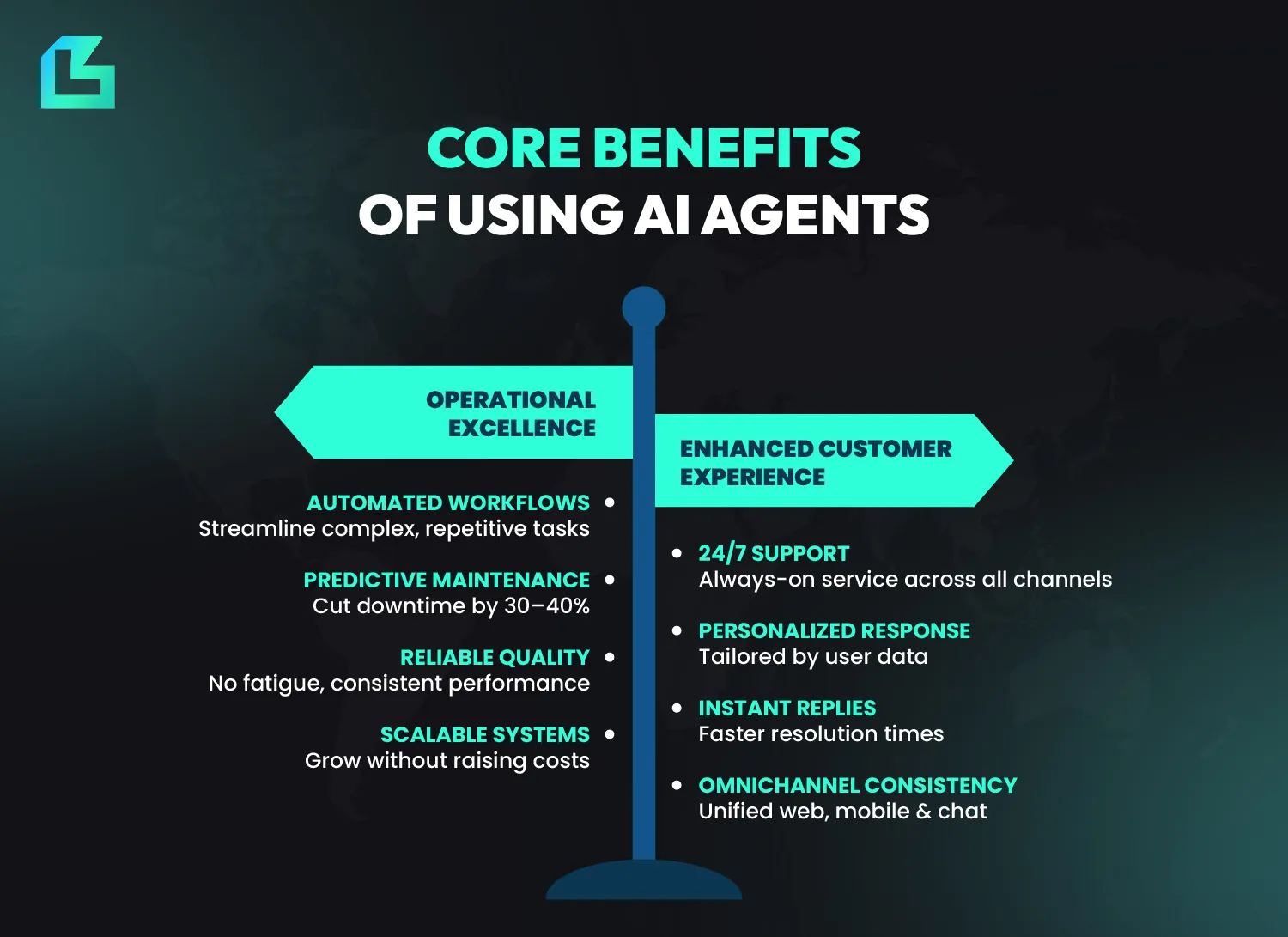The AI Agents Marketplace: Innovative Solutions for Forward-Thinking Leaders
Unlocking the Complete Prospective of the AI Agents Marketplace: What You Need to Know
The AI agents marketplace presents substantial opportunities for businesses aiming to improve effectiveness and automation. Nonetheless, steering via this landscape calls for a tactical approach. Business must analyze their specific demands and identify ideal AI solutions. As organizations begin this trip, they encounter essential choices that can form their future. What factors should they prioritize to ensure effective integration and make the most of advantages? Understanding these elements is necessary for making educated options.
Understanding the AI Agents Marketplace Landscape
As the demand for AI remedies remains to grow, the landscape of the AI agents marketplace has actually advanced right into a vibrant environment. This marketplace includes a varied series of product or services developed to boost automation and efficiency throughout different industries. Principal include established tech firms, startups, and open-source communities, each contributing distinct developments and performances.
The affordable nature of this atmosphere cultivates fast innovations, resulting in a selection of AI agents customized to details tasks, from customer support chatbots to complex decision-making systems. As companies progressively acknowledge the value of AI, they look for services that supply scalability and integration with existing technologies.
Regulative considerations and ethical effects additionally form the marketplace, engaging designers to prioritize openness and liability. On the whole, the AI agents marketplace proceeds to increase, driven by technical technology and a growing understanding of the transformative potential of expert system.
Secret Applications of AI Agents Throughout Industries
AI agents are transforming different markets by automating tasks that enhance functional effectiveness and decision-making. In the medical care sector, AI agents help in diagnostics and client management, enhancing procedures and improving end results. In finance, they examine market patterns and help with trading, enabling quicker and more enlightened investment choices. Retail industries utilize AI agents for inventory administration and customized client experiences, enhancing sales techniques and supply turnover.
Manufacturing additionally advantages, with AI agents keeping track of devices and anticipating maintenance needs to minimize downtime. In advertising and marketing, they evaluate consumer habits and automate targeted campaigns, enhancing interaction and conversion rates. AI agents play an essential function in logistics, maximizing supply chains and reducing prices with wise transmitting and demand forecasting. As organizations across these sectors embrace AI agents, they expose new levels of performance and innovation, positioning themselves for future development and competitive advantage.
Determining the Right AI Agents for Your Organization Needs
How can organizations figure out which AI agents line up ideal with their specific requirements? To make educated decisions, companies must start by evaluating their functional goals and determining the certain difficulties they deal with. This includes specifying the crucial functions that AI agents will certainly support, such as customer support, information evaluation, or process automation.
When the needs are clear, companies can explore the marketplace for AI agents customized to those features. They should think about aspects such as the agent's capacities, combination simplicity with existing systems, and versatility to different workflows. In addition, assessing study or reviews from similar industries can supply understandings right into effective applications.
Lastly, consulting with technological professionals or performing pilot tests can further refine selections, making certain that the chosen AI agents not just meet instant functional demands yet additionally line up with lasting strategic goals. This systematic strategy improves the possibility of choosing one of the most efficient AI services.
Evaluating AI Agents: Metrics and Performance Indicators
Reviewing the efficiency of AI agents needs a clear collection of metrics and efficiency signs customized to the specific goals of the organization (AI Agents Marketplace). Secret metrics commonly include accuracy, which gauges the representative's capacity to supply proper results, and reaction time, mirroring the rate at which the agent refines demands. Additionally, customer contentment scores offer understandings into exactly how well the agent meets customer expectations
Engagement metrics, such as frequency of usage and retention rates, can indicate the agent's efficiency in maintaining customer passion. Cost-effectiveness is another important performance indication, identifying whether the benefits gained from the AI agent validate its operational costs.
Versatility and knowing prices are significant, as reference they determine the representative's capability to enhance over time. With each other, these metrics give an extensive framework for assessing AI agents, enabling companies to make informed choices regarding their assimilation and optimization.

Finest Practices for Incorporating AI Agents Into Your Procedures
Effective integration of AI agents right into procedures requires a strategic strategy that aligns with the company's purposes. Organizations should assess their details requirements and recognize the areas where AI can add the most value. This calls for a complete analysis of existing workflows and procedures to identify ineffectiveness.
Next off, it is crucial to select the right AI agents tailored to these needs, guaranteeing compatibility with present systems. Training employees to function along with AI agents improves approval and promotes a collaborative environment.
Additionally, companies must develop clear communication networks to assist in feedback and modifications, making sure constant enhancement of AI capabilities.
Ultimately, keeping track of performance metrics post-implementation enables recurring assessment, helping organizations adapt and enhance their AI methods over time. By following these ideal practices, services can successfully utilize AI agents to improve efficiency and accomplish their strategic goals.
Browsing Ethical Considerations in AI Adoption
What honest dilemmas arise when organizations embrace AI innovations? The execution of AI agents presents numerous difficulties, particularly relating to liability, openness, and fairness. Organizations should come to grips with guaranteeing that their AI systems do not perpetuate predispositions, as algorithms educated on historical data can reinforce existing inequalities. Additionally, the opacity of some AI decision-making procedures can lead to an absence of accountability, making it difficult to recognize responsibility in case of errors or negative end results.
Privacy concerns likewise arise, as AI systems usually require comprehensive information collection, questioning about approval and information security. Moreover, the possible displacement of jobs as a result of automation introduces honest considerations bordering workforce influence and financial inequality. Organizations needs to navigate these complexities carefully, fostering an honest framework that prioritizes civils rights and societal welfare while optimizing the benefits of AI innovations. By dealing with these moral factors to consider, organizations can assure responsible AI fostering.
Future Patterns: What to Anticipate in the AI Agents Marketplace
The AI agents marketplace is poised for significant advancement, noted by raised automation capacities that improve jobs throughout different sectors. Alongside this, improved personalization features are anticipated to customize individual experiences much more properly, accommodating specific preferences and requirements. These fads recommend a future where AI agents become crucial tools for both companies and customers.
Raised Automation Capacities
Arising fads in the AI agents marketplace signal a significant leap in automation abilities, improving industries and operations. As AI agents come to be much more advanced, they are increasingly able to handle intricate jobs with very little human treatment. This development allows companies to improve her comment is here operations, lower prices, and boost performance. For example, industries such as logistics and production are leveraging AI agents to automate inventory monitoring and predictive maintenance, causing enhanced performance. In addition, the combination of device learning algorithms empowers these agents to find out from previous information, enhancing their performance with time. As automation comes to be much more prevalent, companies can expect transformative modifications in how they operate, leading the way for innovative remedies and brand-new competitive advantages in the marketplace.

Enhanced Customization Functions
Just how will boosted personalization attributes improve individual experiences in the AI agents marketplace? These developments are readied to transform just how customers connect with AI agents, tailoring solutions to private choices and demands. By evaluating individual information and habits, AI agents will supply suggestions and services that resonate even more deeply with each customer. This change towards hyper-personalization will not just improve customer satisfaction however likewise foster better commitment to particular systems. Additionally, the combination of responses devices will permit AI agents to adjust in look these up real-time, guaranteeing that the customer experience continuously progresses. As these attributes come to be typical, the marketplace will likely see increased interaction and retention, driving innovation and competition amongst AI programmers to offer one of the most tailored experiences feasible.
Regularly Asked Questions

How Do I Choose the Right AI Agent Vendor?
Picking the right AI agent vendor includes evaluating their know-how, integrity, and consumer responses. Analyzing the modern technology's compatibility with existing systems and recognizing rates designs are necessary steps in making an informed choice.
What Are the Expenses Related To Releasing AI Agents?
The expenses connected with releasing AI agents include licensing fees, facilities expenses, maintenance, training, and prospective integration expenses. Organizations has to review these factors to effectively budget for implementation and ensure an effective release strategy.
Can AI Agents Be Customized for Particular Service Needs?
AI agents can indeed be customized to fulfill details service demands, permitting companies to customize capabilities and efficiency - AI Agents Marketplace. This flexibility improves functional performance, addresses one-of-a-kind challenges, and cultivates development in various fields and sectors
How Do I Make Certain Information Privacy With AI Agents?
To guarantee information privacy with AI agents, organizations should execute robust encryption, establish clear data dealing with plans, conduct routine audits, and make use of anonymization strategies to secure sensitive details during processing and storage space.
What Support Alternatives Are Offered After AI Representative Implementation?
After executing AI agents, companies usually have accessibility to different assistance options, consisting of technological support, customer training, and regular updates. These sources assure smooth procedure and assistance attend to any obstacles that might develop post-implementation.